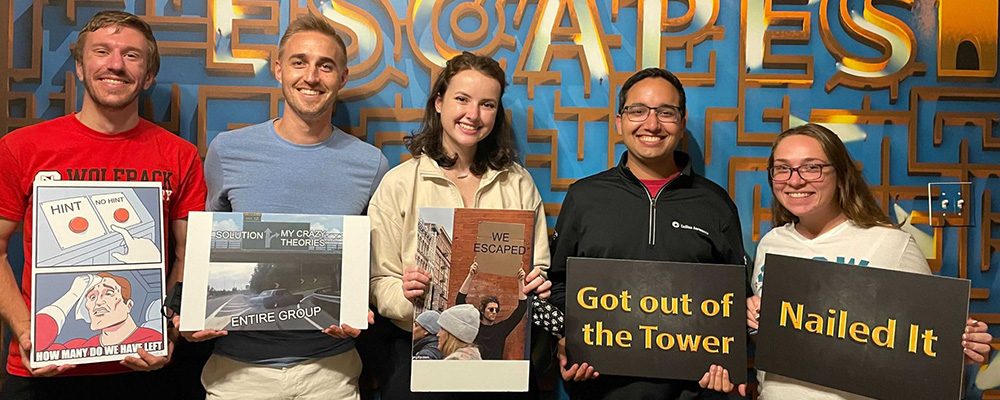When I was accepted to the Institute for Advanced Analytics (IAA), I was enthralled with the idea of going back to school full-time and learning new and exciting things. However, by the time the start of the summer semester came around, I was quite anxious about the idea of transitioning back to being a student after being in the workforce for a few years.
The three major fears that I had were:
- Would my age (I was a few years older than the people straight out of undergrad) make me an outsider?
- Would I have forgotten how to be a good student because I was away from the classroom for a few years?
- Would the material be out of the scope of my learning ability?
After being a student now for awhile, I can better reflect on my initial fears and hopefully alleviate them for any prospective students who have spent time in the workforce and away from classrooms.
Age is Just a Number
Upon arriving for my first day at the IAA, it immediately became clear to me that my age would not, in fact, make me an outsider. The data backs this up as the age in my cohort ranges from 21 (just a few months out of undergrad) to 52 (with decades of work experience). No matter where my peers fall in that age range, they have all been kind and respectful to everyone else regardless of age.
Mimicking the Workplace
The IAA aims to produce top-quality, career-ready data science professionals. As this is their goal, they structure the program a lot like a work environment. Most of the assignments are group based which mimics the workplace. My eight-month-long practicum project is working with real-world data; this is very similar to projects that one would have in the workforce, where a team works on one problem together for a long time. Of course, there are still lectures, quizzes, tests, and homework, but the IAA does a phenomenal job of blending the academic and industry experiences.
All Backgrounds Welcomed
While there are a good number of students with degrees and backgrounds in fields you would expect for this degree program, such as computer science or statistics, we have a wide range of backgrounds in our cohort— business/ accounting, astrophysics, psychology, sociology, engineering, philosophy, and many others. The IAA purposely recruits from a diverse set of backgrounds and because of that, they make sure there is every opportunity available to students. In the summer, there is an optional primer class that contains essentially everything that you would need to know from an undergraduate degree before entering the program, condensed into a few weeks. Once the school year begins, the professors are all open for pop-in visits and are always reachable by email.
Making the jump back to academia after being in the workforce for a few years can be intimidating.
Very quickly after arriving at the IAA, it became apparent that none of the three main fears I had came true. In fact, the IAA is likely among the best graduate programs for people interested in pivoting their career after being out of school for a few years. I hope I have eliminated some of your fears if you too are in a similar situation.
Columnist: Evan Patton
